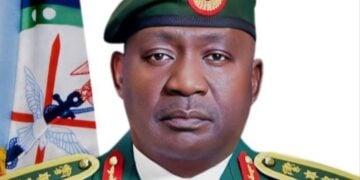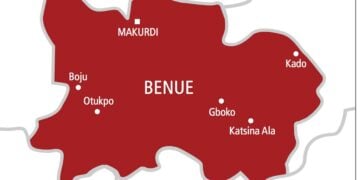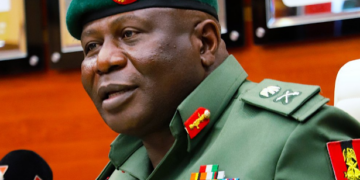The Independent Media and Policy Initiative (IMPI) has said that contrary to suggestions by some media outlets, the economic reforms of President Bola Tinubu’s administration are based on a clear plan to steer the country away from the tragic path of another oil-rich country, Venezuela.
This according to the policy think- tank in a statement by its chairman Dr Niyi Akinsiju is because years of populist macro-economic policies have sunk the country to a level that the country had to change course or be doomed.
“We have observed with interest the criticisms that continue to trail the reforms implemented by President Bola Ahmed Tinubu’s administration. Of particular interest are two opinions that gained some traction.
“One of the critics finds the reforms to be a: ‘wreckage of the past 15 months, from which the country is reeling.’ The other viewpoint, an editorial, brands the ‘government as insensitive and strategy-deficient.’ It also sees the government as ‘incompetent to perform its primary duty of delivering welfare and security to the people.’
“These attacks on the ongoing reforms are natural if viewed from the relatively narrow and subjective context of the steep change in the country’s cost of living. Yet, the reality of the nation’s macroeconomic situation is that where we are on the economic curve is a consequence of where we came from. When the premise and predicates of the nation’s economic trajectory are reviewed and aggregated, the apparent conclusion will be that we are where we are because this affliction of economic malaise at this point is predetermined.
“Though the mainstream media and thought leaders unconsciously felt that the country’s economic management has always had a problematic stigma, they refused to give critical attention to the possible consequences of the national economic peregrination since we first struck oil in commercial quantity in the 1960s. Where we have found ourselves is a function of where we came from.
“Since 1972, the Nigerian economy has been characterised by an unpredictable circle of bust and boom. In layperson’s terms, it means that one moment, we are deemed rich and able to buy whatever catches our fancy, and everybody, including the media, is happy. The next, we are flat broke. We lament the difficulties encountered in sating our basic needs, whining and criticising the government in power as the source of our decimated existence.
“But truth be told, the situation report is that we have arrived at the junction of our economic comeuppance where we must pay for decades of abuse and wrongdoing. It’s that simple.
“Typically coming from an underdevelopment mindset, Nigeria heavily borrowed from the preferred economic practices of the then-emerging economies of South America. Among countries in this region, Nigeria shares many similarities with Venezuela, particularly in the nature and character of their adopted economic model, which economists describe as “macroeconomic populism,” it explained.
IMPI also cited similarities between the two oil-producing countries to drive home its position.
It said: “Like Venezuela, oil has taken Nigeria on an exhilarating but dangerous boom-and-bust ride. Again, like Nigeria, decades of poor governance have driven what was once one of Latin America’s most prosperous countries to economic and political ruin. In 2008, crude oil production in Venezuela was the tenth-highest in the world at 2,394,020 barrels per day, and the country was also the eighth-largest net oil exporter in the world.
“We also find a similarity in the leadership style prevailing in Nigeria between 1999 and 2015, as well as in Presidents Hugo Chavez (1999-2013) and Nicolas Maduro (2013- present) of Venezuela. The Venezuelan leaders implemented the wrong macroeconomic policy during the 2000s and early 2010s when Venezuela’s economy, like that of Nigeria, was booming due to the global commodity ‘supercycle’ – a prolonged period of high and rising grain, metal, oil and gas prices.
“Between 2000 and 2015, government spending in Nigeria, like Venezuela, was deeply pro-cyclical. Instead of saving at least some money for bad times during the good times—as Norway, Saudi Arabia, and virtually all other oil exporters have done—Nigeria established the Excess Crude Account (ECA) by fiat in 2004 without legislative backing.
“In May 2007, the ECA had up to $20 billion. Still, like the Venezuelan government, which ran double-digit fiscal deficits as the economy boomed, spending far outpaced income from taxes and other revenues. Both countries were on record for raising their external debts sixfold to finance these unnecessary shortfalls.
“While Venezuela saddled the state-owned oil company with over $100 billion in obligations, the Nigerian government depleted the ECA by more than 80 per cent, from $20 billion to $2.4 billion. It had ratcheted foreign debt by over 200 per cent to $10 billion in 2015. By 2015, the Nigerian economy was effectively underwater.
“Like Nigeria, whose petroleum price per litre was perhaps the cheapest in Sub-Saharan Africa, Venezuela’s petrol was not just the most affordable globally but often virtually free. This led to an estimated 100,000 barrels of petrol worth over $10 billion per year being smuggled across the border to Brazil and Colombia each day, where it could be resold at a profit, a close resemblance of what obtained on Nigeria’s borders with its West African neighbours.











